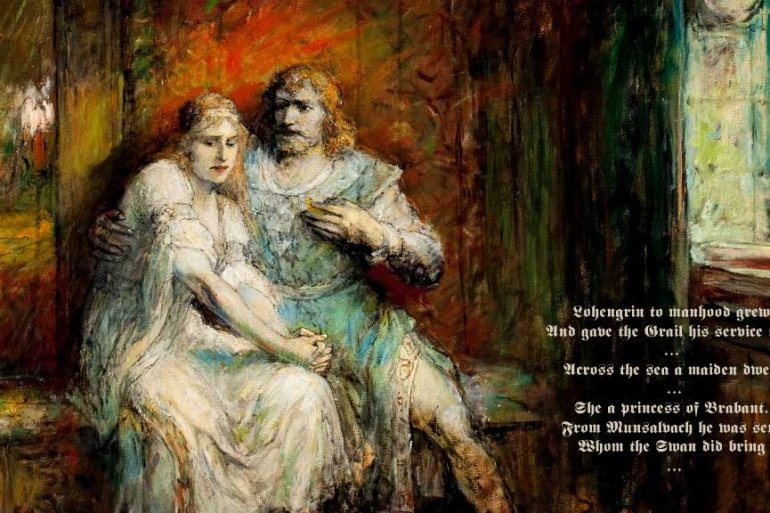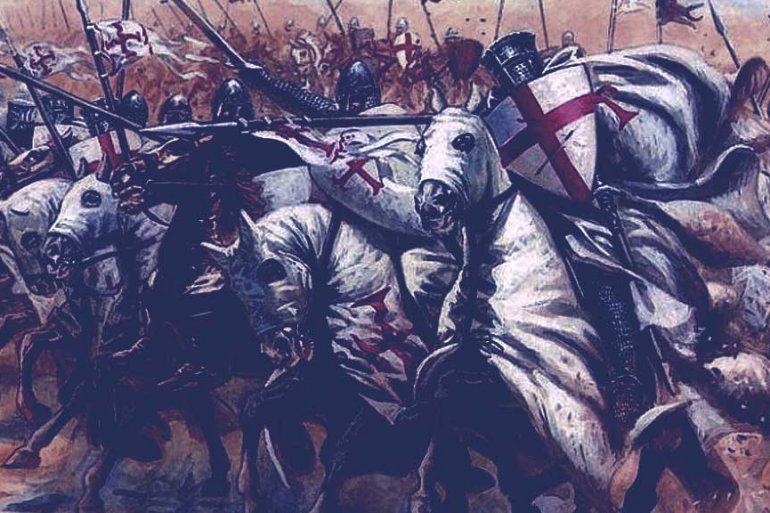The mysterious relic —which could be at one and the same time a chalice, a book, a stone, or a person— was seen as existing both on the earth and at a remove from it. In the poem The Later Titurel, it hovers above the world, untouched by...
The Archives
John Galt, in Atlas Shrugged: “Through centuries of scourges and disasters, brought about by your code of morality, you have cried that your code had been broken, that the scourges were punishment for breaking it, that men were too weak and too selfish to spill all the blood...
In 1934 the Berliner Illustrirte Zeitung published in Issue 48 an article by Otto Rahn entitled: Jehans Letzer Gang (Jehan’s Last Steps). The piece told the story of one Jehan Tessenre, a young family man moments away from his execution by Hugeunot troops in reprisal for the death...
Lohengrin to manhood grew And gave the Grail his service true … Across the sea a maiden dwelt … She a princess of Brabant. From Munsalvach he was sent Whom the Swan did bring … Wolfram von Eschenbach, Parzival Swan Knight The Swan Knight tale occurs in...
Aleister Crowley is, few would argue, the father of modern occultism, neopaganism, and New Age spirituality. Today’s Thelemites (avowed followers of Crowley and his spiritual doctrine of Thelema) far outnumber the small cadre he recruited in his lifetime. His motto “Do What Thou Wilt” has had a subtle...
The Bank of Credit and Commerce International (BCCI) was a useful tool for many powerful clients, ranging from the CIA and the Medellín cartel to Osama bin Laden, al-Qaeda, and influential figures in both the Republican and Democratic parties of the USA. When BCCI was finally shut down,...
Plato, as the speaker Timaeus, refers to the Demiurge frequently in the Socratic dialogue Timaeus, circa 360 BC. The Demiurge as the entity who “fashioned and shaped” the material world. The Demiurge is the craftsman. The term demiourgos or craftsman is itself surprising – one might expect such...
The music of Jón Leifs is often inspired by Iceland’s powerful nature and literary heritage. From early on he was profoundly influenced by the medieval tradition of Icelandic literature, preserved in a handful of manuscripts, including the Poetic Edda and the Prose Edda. Leifs’ magnum opus is the...
He who desires to philosophize must first of all doubt all things. He must not assume a position in a debate before he has listened to the various opinions, and considered and compared the reasons for and against. Never judge or take up a position on the evidence...
Marta Hillers’s only consolation was that she had refused to put her name on the extraordinary manuscript in which she had so meticulously recounted the Soviet conquest of Berlin during the cold spring of 1945. It had been a time when her life—like that of tens of thousands...
The Order of the Knights Templar was dissolved by Pope Clement V at the beginning of the fourteenth century. From its humble beginnings, this society of warrior-monks grew into an extraordinary military and financial power. Eventually, a king wanted to get rid of this order, which had become...
Those who love to regurgitate the word ‘democracy’ are usually those who know little about its meaning in the first place. One could draw a parallel with a criminal on trial who never calls himself a crook. It is only his accusers who call him a crook. De...













